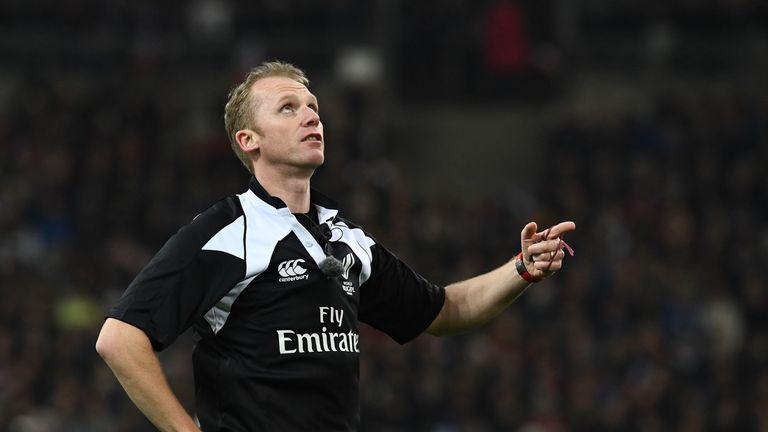Nolli Waterman on referees and language in the international game
Wednesday 13 March 2019 12:23, UK
"The ref can't be clearer than that".
Or so said Gordon D'Arcy during commentary in the Ireland vs France match. And he is right... if your first language is English.
With the pace and intensity of rugby increasing and with the referee charged with the responsibility of allowing a flowing game and a 'level playing field', how can it be the case that their instructions are only FULLY understood by one team?
I think that the English-speaking nations have a clear advantage, sometimes quite literally, when referees only use one language during games.
Would this be adding to an already ridiculously hard job? Probably. However, I do think addressing this issue is legitimate and necessary, when the margins of Test match rugby are so fine.
I am not saying that everything should be said twice or that referees should be fluent in every language of teams that they are covering. However, could there be more consistency when describing certain aspects of the game that could be learnt by non-English speakers?
"Crouch - Bind - Set" is universally known and understood. Like this, is there the possibility of an internationally agreed set of standard phrases, without the sometimes subtle nuances of the English language that are used within test matches?
As much as I enjoy the conversational language used by referees and the personalities that are now enjoyed by fans across the game, the specific details given to players that allow/encourage them to make split second decisions, in game changing moments, should be consistent.
Interestingly, Wayne Barnes when refereeing France vs Wales in Round 1, used a couple of French words when speaking specifically to them at the breakdown. This may seem quite basic but the reaction time of players improved and why wouldn't it? He was talking to them in their own language.
In contrast, when Glen Jackson refereed the Italy vs Ireland match, he only used English and the Italians gave away a couple of penalties for holding on at the breakdown. Surely the use of one Italian word would have helped their cause?
Not only is the language in the heat of the battle important, but also the explanation post-decision will accordingly guide the captain and other key decision makers in how they adapt their game. On Sunday we watched five reset scrums, including three for penalties against the French on their five-metre line. Ref Ben O'Keeffe described why each penalty was given.
The Irish pack used the information heard and called out-loud, demonstrating a positive response to the explanation given - a subtle manipulation of the referee?
It showed they had understood and were 'doing something about it'. A small but effective tactic that the French could not possibly benefit from. Especially seeing that Guilhem Guirado looked slightly confused by the explanations given.
Throughout the game, Rory Best could repeat any information verbatim to his team given to him by O'Keeffe. However, Guirado had to translate the information back to French in his head before he could relay this to his players. This is something that every foreign captain needs to do…but is this inhibiting some of the finer details they would pick up if their mother tongue was being used? Clearly the detail could get lost in translation.
The other limitation of not fully understanding the referee is how you adapt your tactics and as such, utilise the verbal information they are giving to interpret how they are managing the game. Most international teams will analyse carefully the referee who is officiating their next game. They will look at trends of penalties, when and why cards are used and how the referee communicates throughout the match, particularly at the breakdown.
This is quite a proactive approach as everyone, of course, wants to work with a referee rather than against them. With this in mind, I do also feel players should take the initiative and try to ensure they are building their knowledge and understanding of the language used.
This can also be supported by a coach and management team, especially when there are fluent English speakers like Conor O'Shea in Italy.








